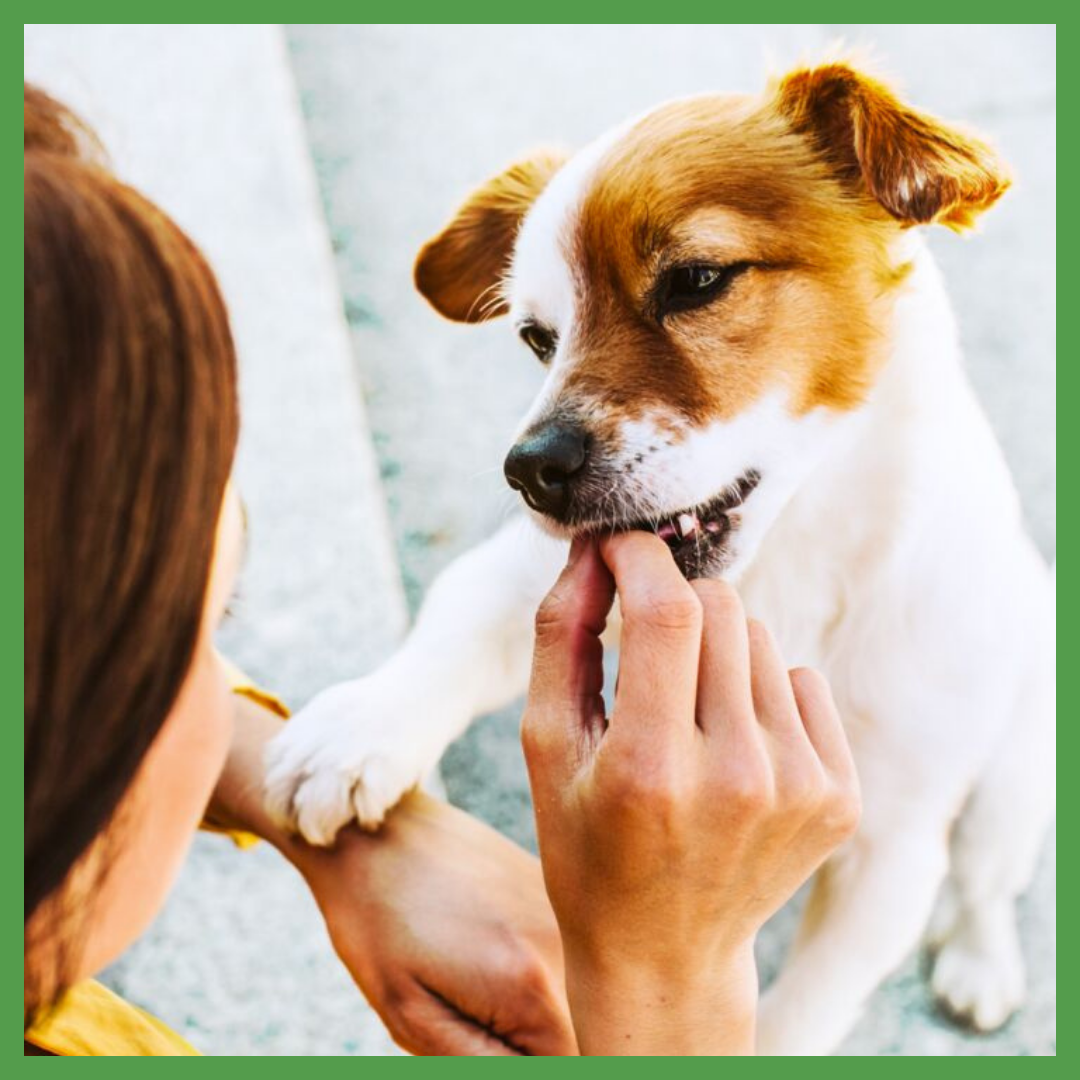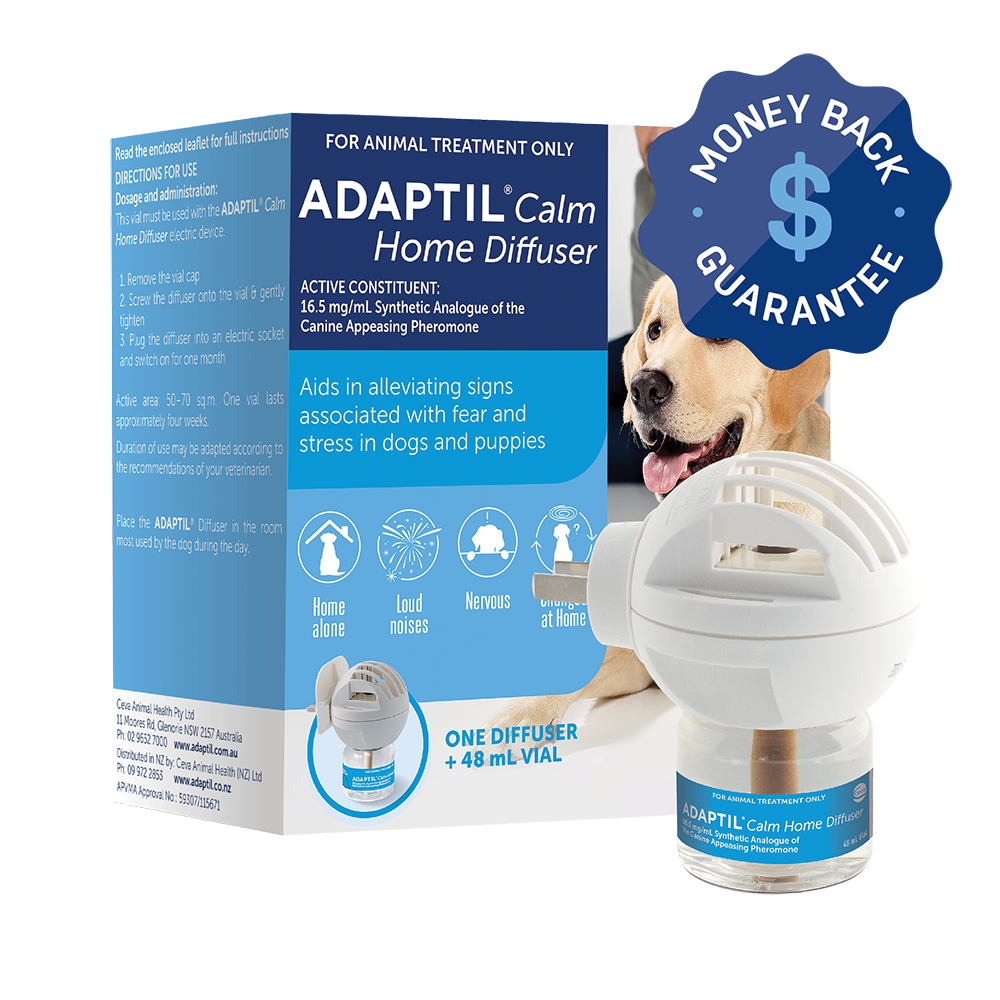How to calm a barking dog
-
Identify the triggers
- There are many reasons why your dog may be barking, which could include boredom or fear.
- Try to understand the situations your dog is barking in and whether it is when they are affected by something that stresses them, for example, being left home alone, meeting dogs they do not know on a walk or when guests arrive.
- Seek advice from accredited behaviourist / dog trainer who can assist you with the specific situation that concerns your dog.
-
Help reduce your dog's vocalisation with an ADAPTIL Collar
- The ADAPTIL Collar releases pheromones to create a safe and secure environment.
- Vet recommended calming solution.
- Continued use for at least 1 month is recommended.
-
Use positive reinforcement dog training
- Always avoid punishing your dog for barking – punishment could actually increase their barking, lead your dog to show undesirable behaviour and affects the bond you have.
- You’ll have better results with positive reinforcement, using treats and rewards when your dog does the things you want them to!
-
Keep active!
- Physical activities like walking or playing fetch help both you and your dog release tension. But it's important not to put your dog into a situation that may cause them stress.
- Don’t forget to keep your dog mentally active too. Activity feeders, chews, games and training all work your dog’s brain.
We recommend:
To produce an immediate calming effect, creating a safe and secure environment.
-
Recommended by vets
-
25 clinical studies published
-
20 years of expertise
Tips to help your dog with stress-related barking
Barking is an important communication tool for our canine companions from puppyhood to seniors. They bark to express themselves, either to other dogs or to humans. As such, several things can cause your dog to bark, but when your dog barks excessively or in certain situations it often indicates an underlying issue. This can be frustrating for you (and maybe your neighbours), but rest assured you are not alone! We’ve shared some tips below to help your dog to refrain from barking during stressful events.
Find out why your dog is barking so much.
Try to identify what makes your dog bark excessively. If it's unclear, write it down and keep a diary, this could help identify. You may then find a way to remove this trigger if possible.
Never punish your dog. It will have the reverse effects and make them feel even more stressed.
Ask your accredited dog trainer / behaviourist for advice to manage barking due to fear
Your dog is stressed and with training (usually desensitisation and counterconditioning) they can learn to manage their fear and respond in a different way.
Your dog may bark for many other reasons than being stressed:
- Boredom - offer activities to mentally stimulate your dog, such as training sessions, puzzle feeders
- Over-excitement - speak to your expert for ways to redirect their excitement
ADAPTIL Calm Collar releases “comforting messages” to calm and reassure your dog helping them reduce their barking when home alone. ADAPTIL is vet recommended and supported by a 30 day money back guarantee.

Try spending peaceful times with your dog (maybe a movie or listen to music) as your dog picks up on how you are feeling.
You being relaxed is going to help your dog relax. Be prepared for the stressful situation as much as possible e.g. ensure you have lots of treats, be able to move away from the situation.
Our Dog Trainer's tip: "Spend time with your dog, it's a great way to relieve stress!"
If your dog continues to bark in stressful situations, contact your vet for additional assistance. There may be an underlying medical reason for their barking and your vet can also direct you to a qualified behaviour expert.
FREQUENTLY ASKED QUESTIONS - CALM A BARKING DOG / STRESS RELATED BARKING
WHY IS MY DOG BARKING SO MUCH?
CAN A THUNDERSHIRT HELP CALM MY BARKING DOG?
WHAT CAN I DO AT HOME TO HELP CALM MY BARKING DOG?

TESTIMONIALS
See how the ADAPTIL Collar helped these Dogs:




































